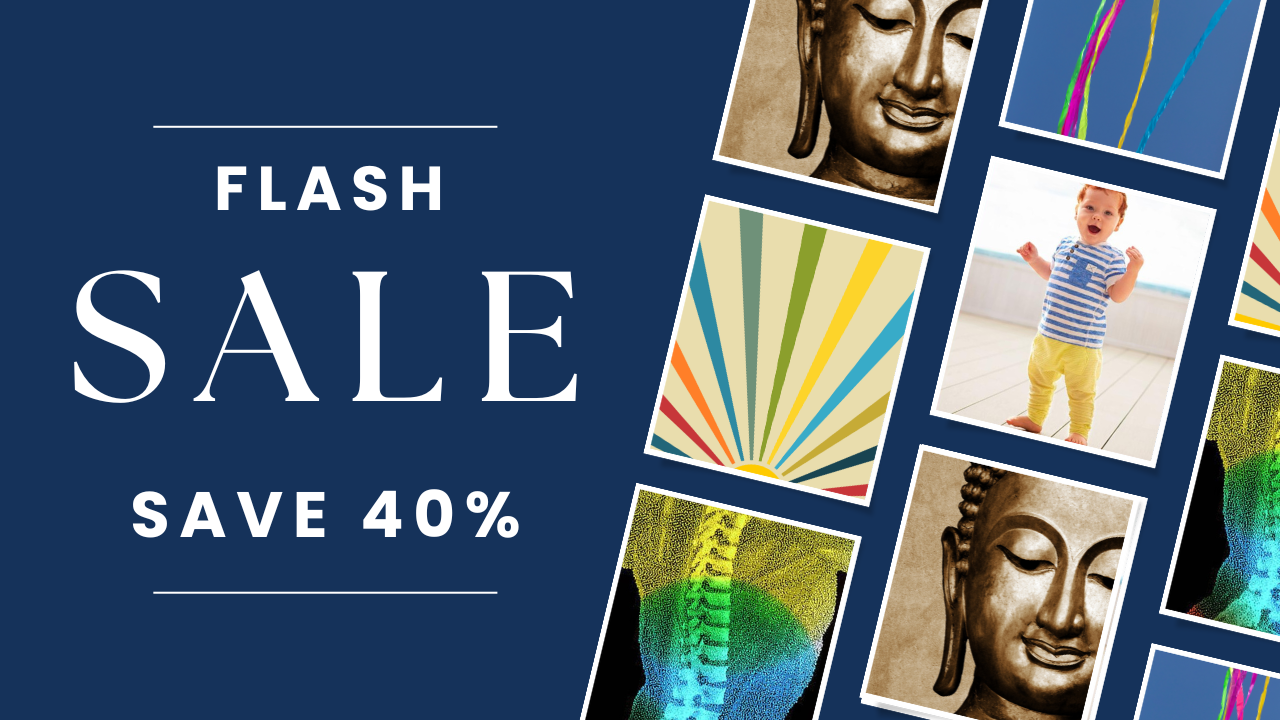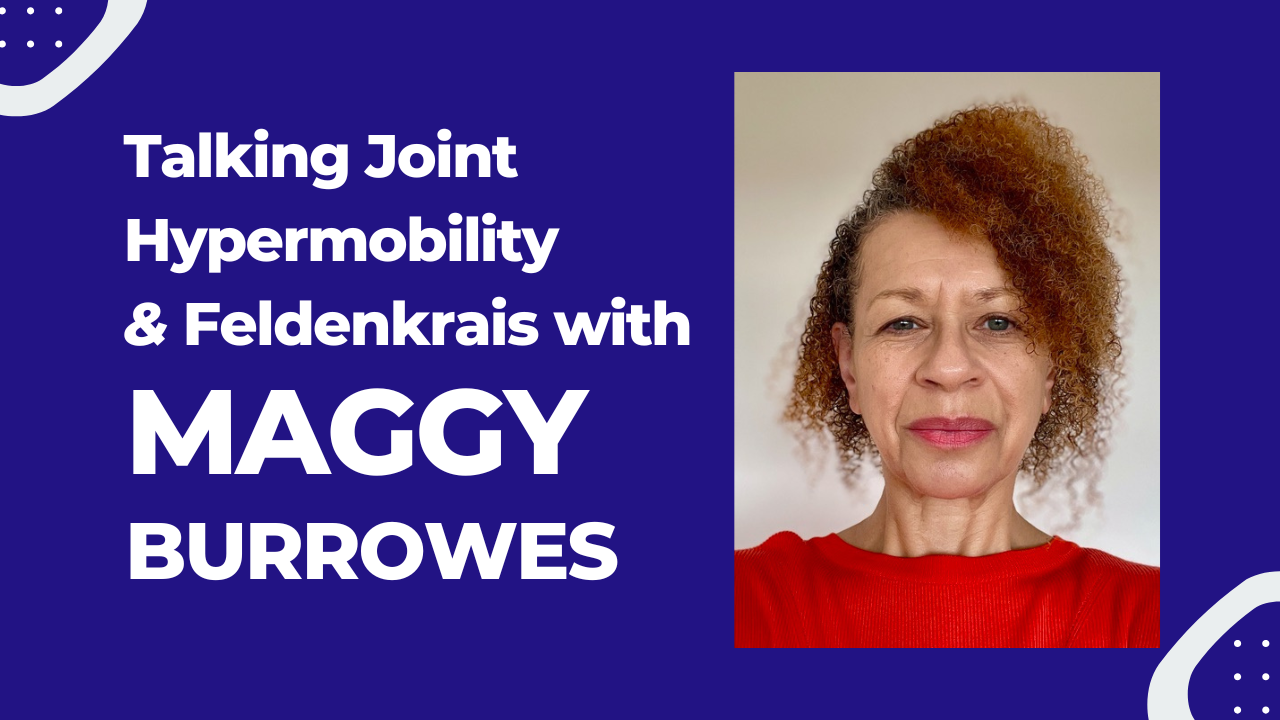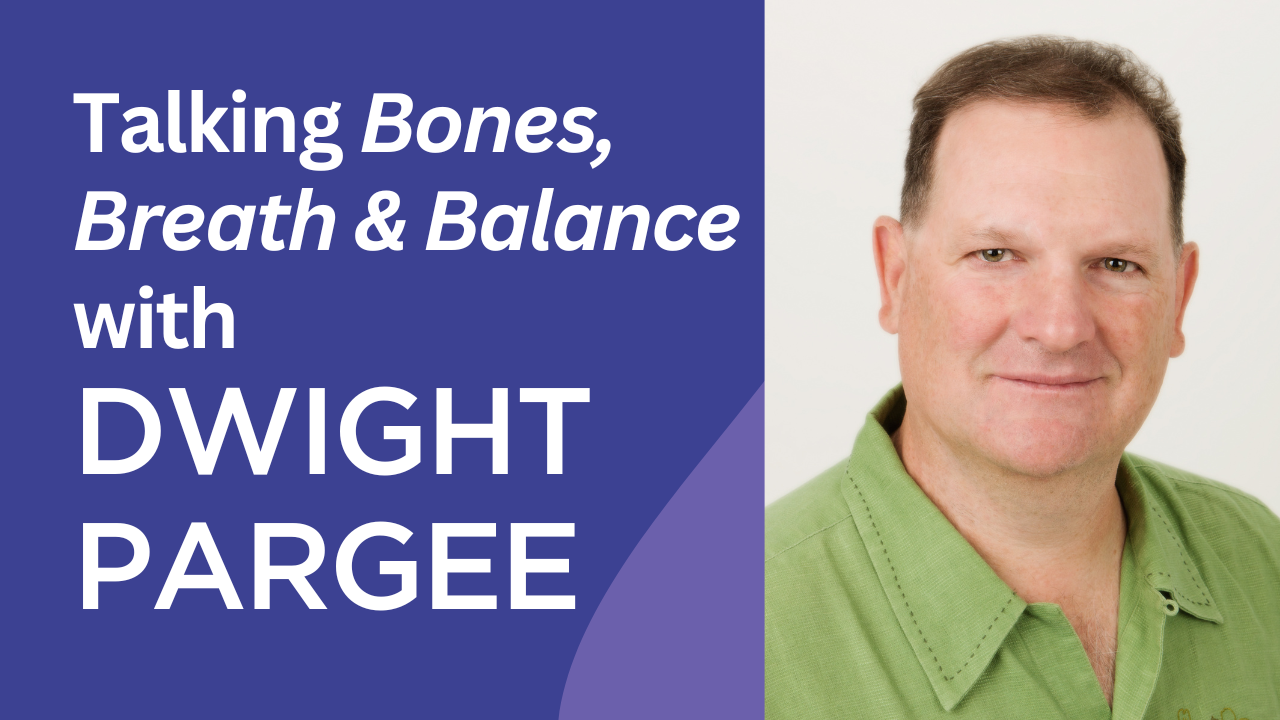Thinking
Feldenkrais
May 2025 Flash Sale

Save 40% through Monday, May 26!
During our May Flash Sale, we're offering 40% off the following online Feldenkrais programs:
- Liberate Your Mouth & Jaw: Grinding your teeth while you sleep? Waking up with tension headaches? This is the program for you! This on-demand program taught by David Zemach-Bersin is designed to help you interrupt the common habits of muscular tension that cause chronic contraction of the muscles of the mouth, jaw, eyes, and brow. Sale: $75 (Reg $125)
- Liberate Your Mood: Looking for a bad-mood cure? The next time you wake up on the 'wrong side of the bed,' try a Feldenkrais lesson from this on-demand program with David Zemach-Bersin! Each lesson is designed to activate your brain-body connection to bring about significant changes and improvements in your mood. Sale: $69 (Reg $115)
- Intelligent Feet: Do you miss walking without foot pain? Tired of living with plantar fasciitis and tendonitis? In this on-demand Feldenkrais program with Raz Ori you will...
Talking Joint Hypermobility & Feldenkrais

Ira Feinstein: What led you to want to teach a Feldenkrais series for those with joint hypermobility?
Maggy Burrowes: Like many people with hypermobile joints, as a child I didn’t realize that I had a condition. I just knew that I was different in a way that was hard to pin down. I couldn't catch or throw a ball, or skip without tripping over the rope. I wasn't completely physically incapable; I had rhythm. I loved to dance spontaneously to music, but not if I was trying to follow instructions. However, I didn't imagine it as being a ‘thing;’ I simply thought I was physically incompetent.
During puberty the hormonal changes I was going through intensified my symptoms. I developed weird pains: my left knee would hurt one day, and the next day it would be my right knee. I had experienced random pains from an early age. My mother called these aches ‘growing pains’, but, as with rheumatism, the pains seemed to be worsened by damp weather, and they also responded to the same remedies. ...
Talking 'Bones, Breath & Balance' with Dwight Pargee

Ira: I'm curious about your upcoming workshop, Bones, Breath, and Balance, and eager to know more about the connection between these three topics.
Dwight: It's an interesting combination! The workshop will feature lessons that explore each topic separately, but come together with a synergistic effect. The lessons that focus on ‘bones’ will help participants to develop something I call "skeletal intelligence," a better understanding of how we move in relation to our skeleton.
The lessons that focus on breath, will activate muscles in our torso that have dual purposes. These include our diaphragm, our intercostal muscles, and a whole set of synergistic muscles that work together to not only bring air in and out, but to support our posture and our uprightness. When we improve our breathing, in an almost magical way, we also improve our upright posture and our ability to move comfortably.
And finally, the lessons that focus on balance will help to improve our balance and our stabili...
Beth Talks Family History of MS, 'Life in Progress,' & More!

Ira Feinstein: You became a physical therapist before you became a Feldenkrais practitioner. What drew you to PT?
Beth Rubenstein: Some of my earliest childhood memories were of my father’s illness, of him going to the hospital, coming home, being in bed. I grew up with an awareness of disability and sickness. Multiple Sclerosis was a common discussion in my family. My father had MS, his brother died of it in the 30’s, and my sister in the 70’s.
I gravitated to volunteer work in hospitals and worked with some children who needed help at home. I was elated in high school when I learned that I could make a living helping people with physical difficulties.
Ira: What was your path after PT school?
Beth: I got a job as a PT, and I loved it. I wanted to learn everything and do everything. I was very interested in how the brain knew how to move. That fascinated me. I took a three-month Proprioceptive Neuromuscular Facilitation (PNF) training— a stretching technique that can imp...
The Feldenkrais Method & Multiple Sclerosis

Note: Beth Rubenstein originally wrote the following article for the LA chapter of the MS Society.
Working with People with Multiple Sclerosis
Multiple Sclerosis has left its indelible mark on my family. My paternal uncle, Benjamin (for whom I am named) was diagnosed and died of it in the 1930's. In the 50s, the disease took my father two weeks after my fourth birthday. In 1986, it claimed the life of my sister, Susan.
My family has been involved with the MS Society for as long as I can remember. As a small boy, my brother Eli walked house to house with the little box collecting for the MS “hope chest.” As a child, my friends and I charged money for our backyard shows and donated the proceeds. Today, my brother and I remain involved. I write and speak about MS to whoever will listen. My daughters and I have participated in the MS walk every year since they were born.
When I was a young physical therapist in 1976, I started the first class for MS patients at UCLA. In 1991, af...
Are you Aware of Where your Shoulders are Right Now?

David Zemach-Bersin talks with Ira Feinstein about the importance of our shoulders, parasympathetic organization, and his upcoming course, Shoulder Rescue.
Ira: I’m curious why you decided to teach a new series focused on the shoulders. You’ve taught classes about shoulders before; what made you want to revisit this subject?
David: After I taught my previous course, I felt a sense of incompleteness around the subject. Our shoulders are a very important area. One of the things that has always interested me is the way in which they are connected to our involuntary nervous system. The rising and pulling up of our shoulders is directly connected to the sympathetic response of our involuntary nervous system to stress, anxiety, and fear and is often the easiest signal to observe that somebody has a history of anxiety and fear.
In my 50-plus years as a Feldenkrais Practitioner, nearly everyone I have seen maintains a high level of unnecessary contraction in their shoulders. This simple ...
November 2024 Flash Sale

For those of us in the northern hemisphere, Fall is quickly giving way to Winter. Losing daylight can cause a cascade of challenges: getting outside less can lead to becoming more sedentary, which can affect our ability to sleep soundly. Additionally, once the snow and ice arrive, we are at an increased risk of slipping and falling. To support you through these changing seasons, we're offering 40% off the following on-demand Feldenkrais programs: A Good Night's Sleep, Better Balance, & How to Survive Sitting through Monday, November 18. Find out more below!
A Good Night's Sleep
Are you or does someone you know having trouble sleeping? Feeling anxious and stressed? Our brain is concerned with keeping us safe. However, this means it sometimes reacts in ways that don’t help us to rest. Stress hormones are produced in our brain whether we are facing danger, or simply experiencing general anxiety. As stress hormones build up throughout the day, they can keep us from getting a deep, r...
The Elusive Chronic-Pain Cure

by Ira Feinstein, MFA
I've lived with chronic pain for over two decades. The pain isn't wholly debilitating: I can go on long walks, ride a bicycle, and practice gentle yoga. But I avoid hikes with steep elevation changes. I move two large pillows around the house to use wherever I sit. And it's been a long time since I engaged in more intense exercises, like running.
For fifteen years, I focused on curing my chronic pain. To me, 'curing' the pain meant being able to return to the bench-pressing, soccer-playing athlete I was before my back and arms started hurting. As my health insurance and budget allowed, I sought help from chiropractors, osteopaths, allopathic doctors, acupuncturists, massage therapists, and physical therapists. At best, the pain would abate temporarily, but I remained undeterred. I'd always thought that 'cure' was such a powerful word—reassuring in its definitiveness. "Once, I had this problem. Now, I don't," had a nice ring. But 'cure' proved to be an unhelp...
Necessity is the Mother of Invention

by David Zemach-Bersin
While developing a series of Feldenkrais classes to help people improve the health of their joints, I've been remembering my teacher, Dr. Moshe Feldenkrais. He had been a scientist, living in London and working in the highest level of physics, when he found himself unable to walk due to excruciating pain in his knee joints. Feldenkrais went to respected doctors hoping that they could help him but learned that due to the extent and type of damage in his knee joints, medical help was not likely. Faced with the prospect of having to use a wheelchair for the rest of his life, Feldenkrais turned his attention to the project of finding a solution to his painful predicament. He was determined, curious, and personally motivated as he focused on his studies.
With a keen scientific mind, Feldenkrais explored the fields of neuroscience, psychology, infant motor development, and physiology and made a series of discoveries about how our patterns of posture and movemen...
How to Approach a Feldenkrais Lesson that Is Difficult

Excerpted from a Question and Answer session with David:
At the outset, it is important to state if a lesson feels too challenging, you don't have to do it. On the other hand, challenging lessons can sometimes be very rewarding. So, what can you do when a lesson is difficult? One approach is to do as much of the lesson as you can do comfortably, and then say, "Okay, that's enough. I did the first fifteen or twenty minutes. I feel good, I felt the difference, and I think I'll stop now." This would be a reasonable and resilient modification of the lesson.
A resilient learner facing a moment of failure doesn't say, "Oh no, I'm finished! I'm never going to ...


